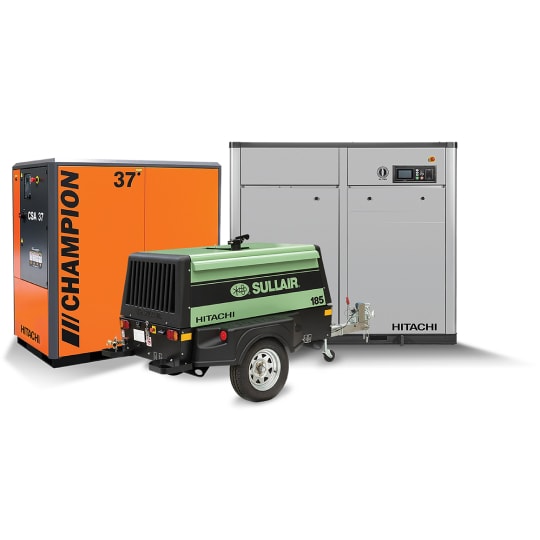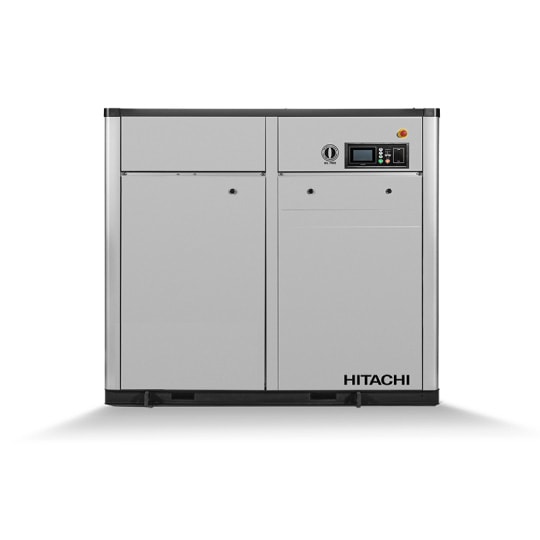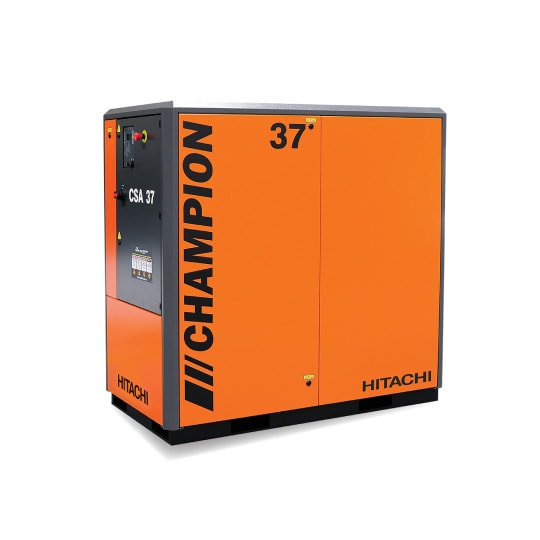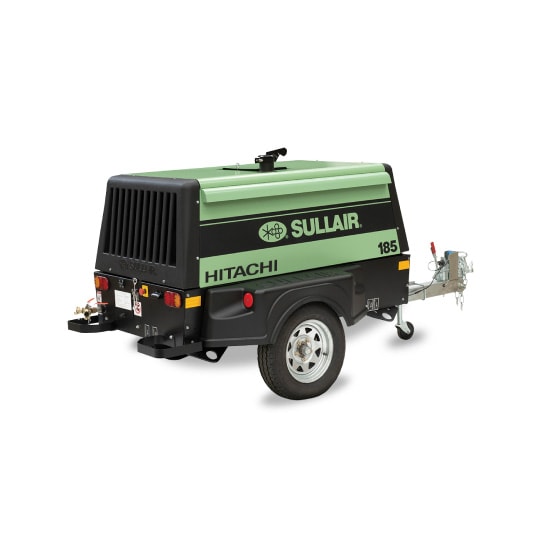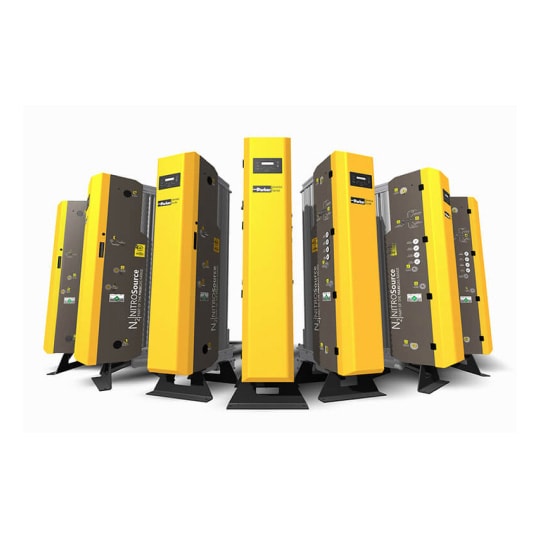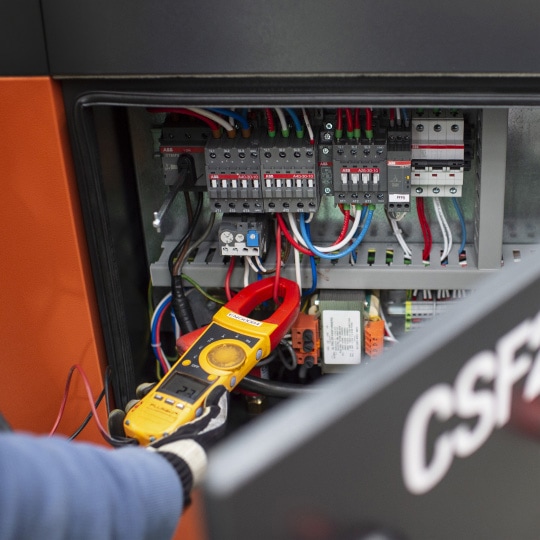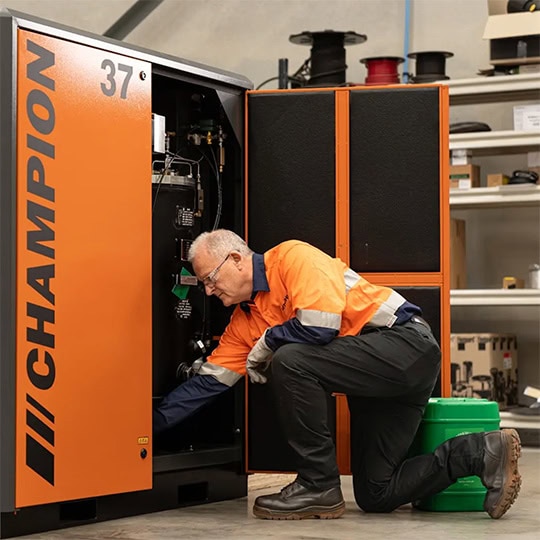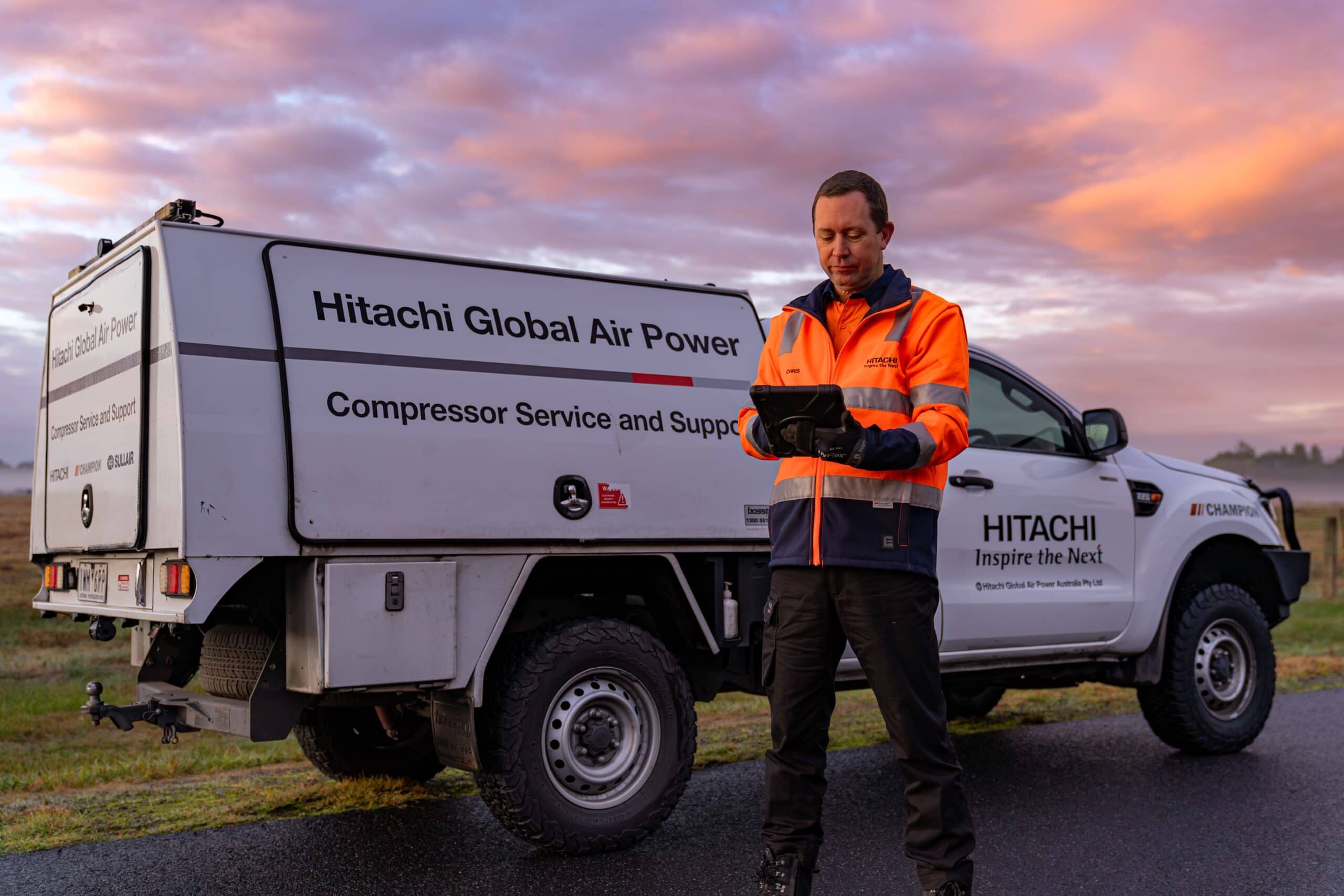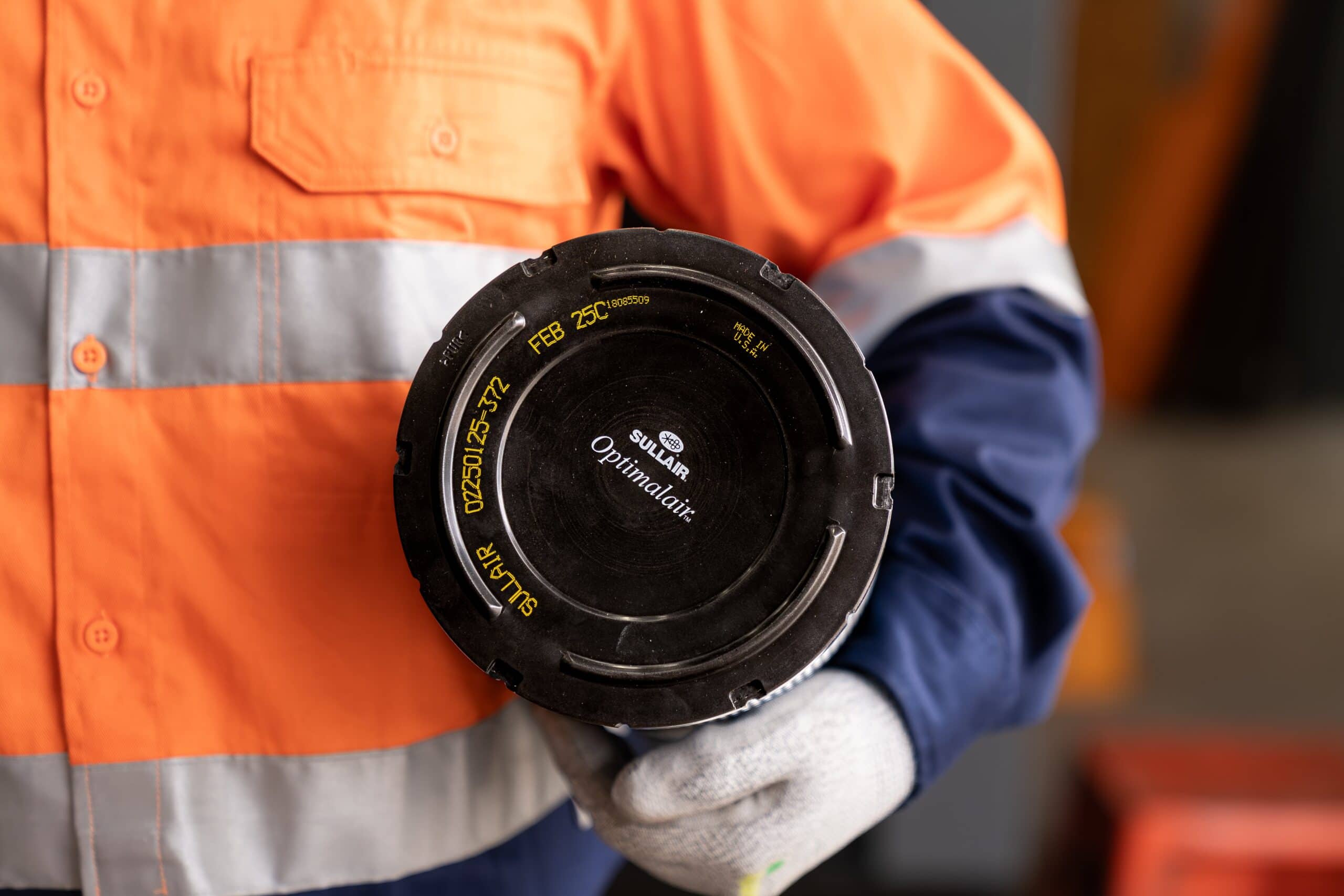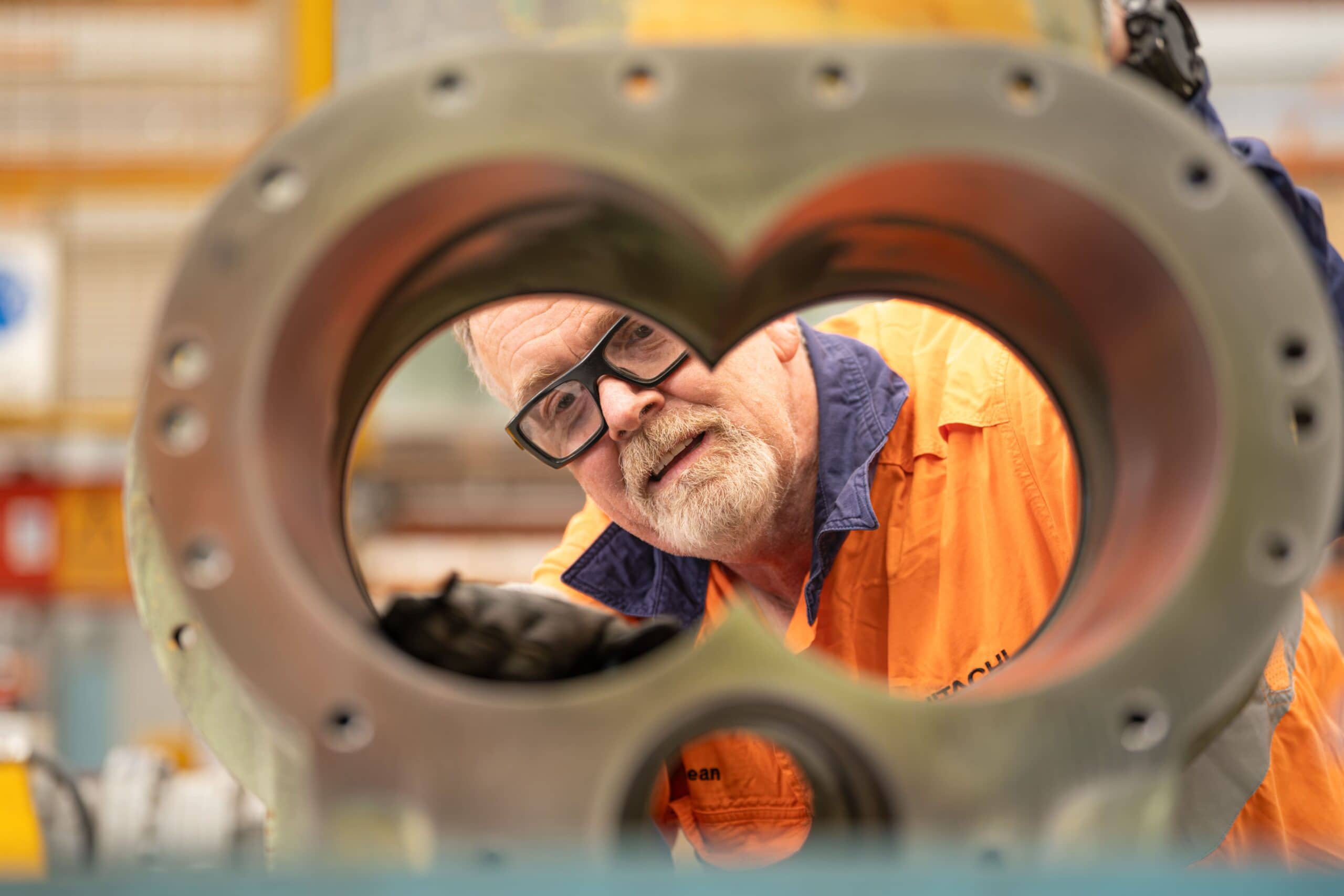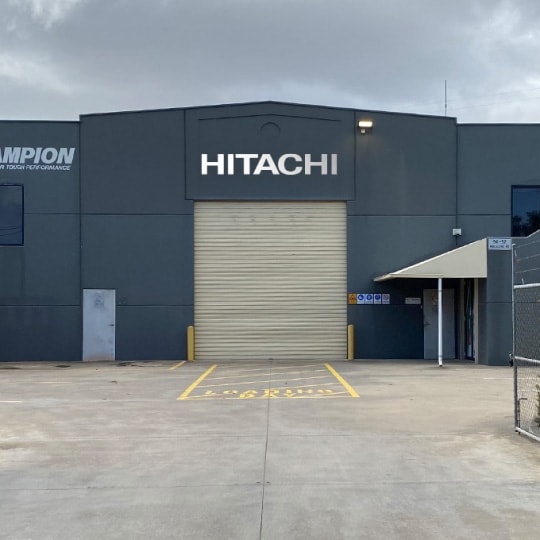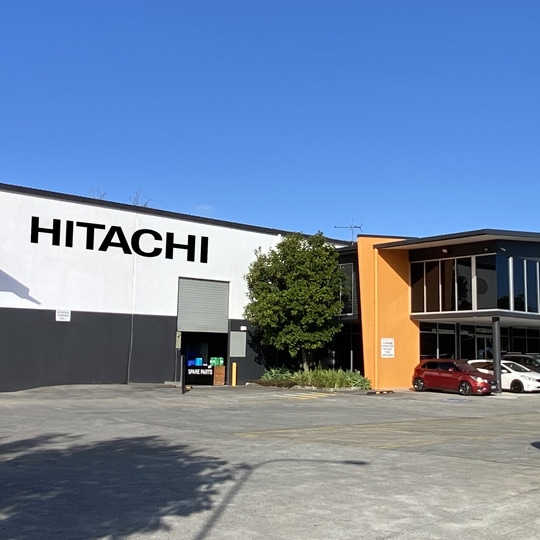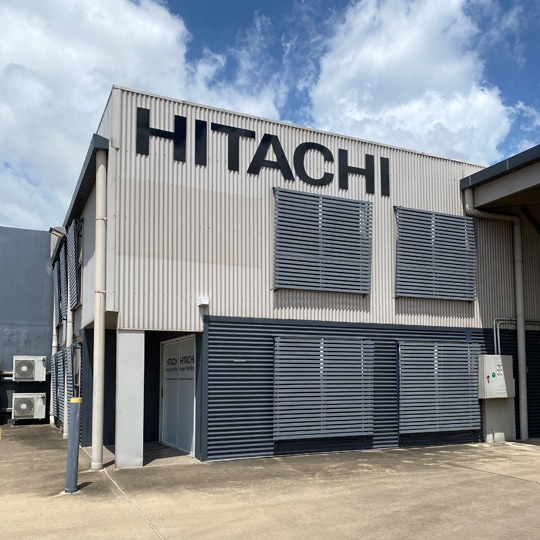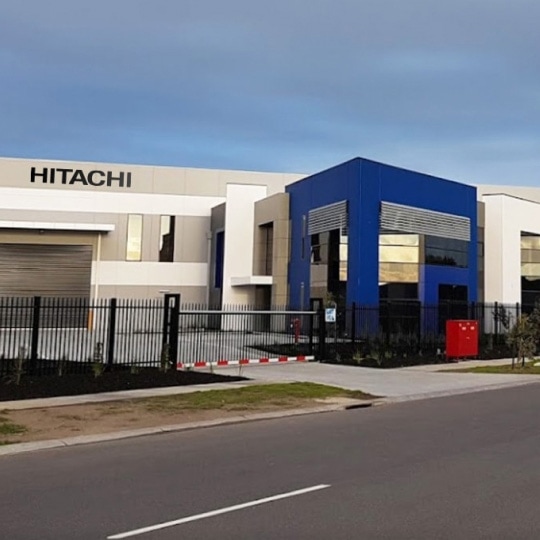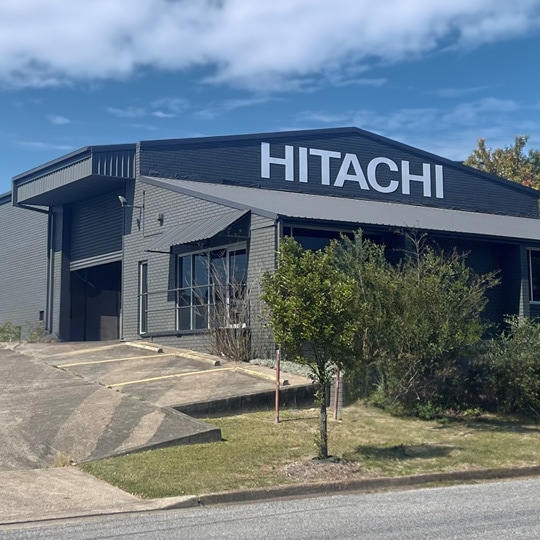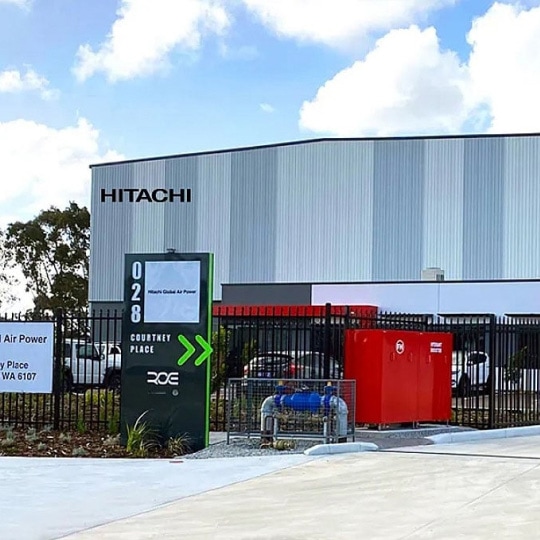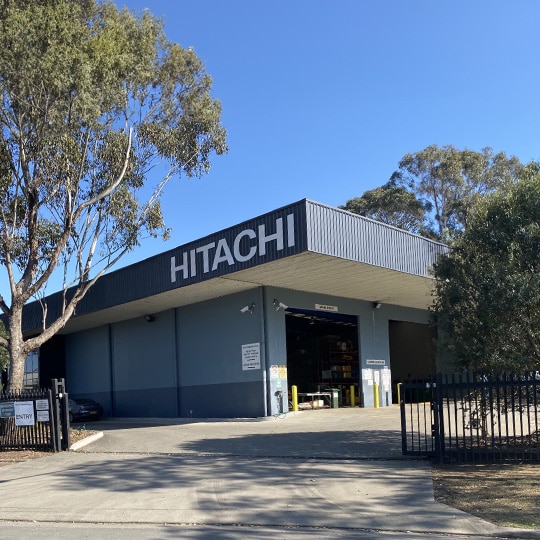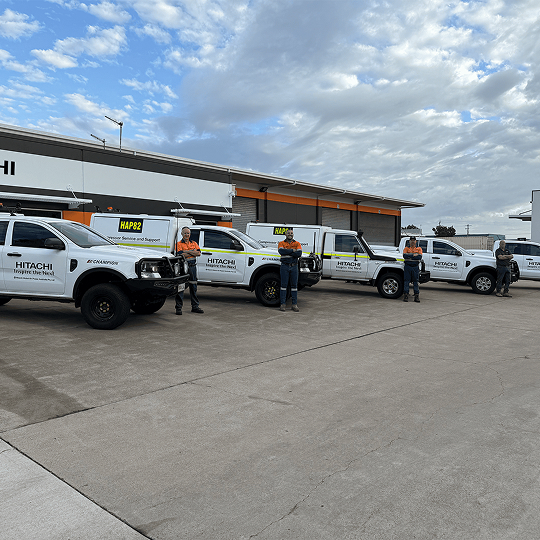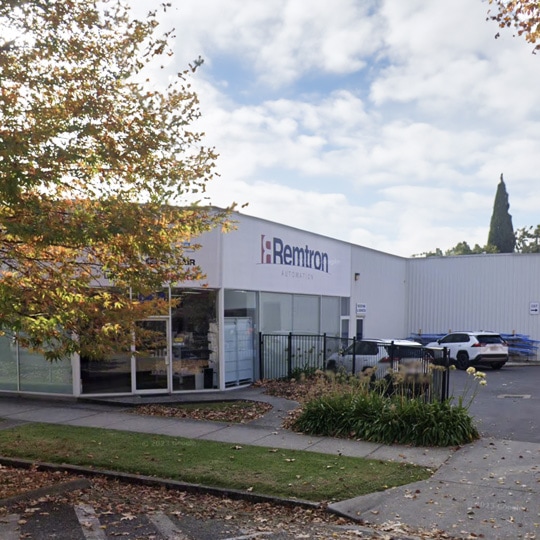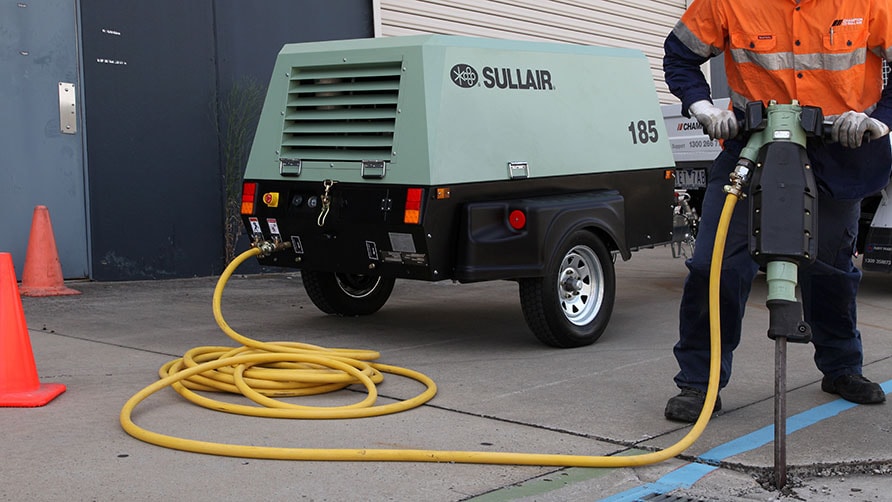
By Spencer Hall and Sullair Australia
When it comes to rotary screw air compressors, it’s important to follow the service and maintenance program that’s been specifically designed for your operational needs. A good customer care and maintenance program is one of the most critical components of system management, since so many machines and functions within industrial facilities rely on compressed air. This comprehensive approach helps ensure a smooth-running operation and prevents interruptions and unexpected downtime.
First and foremost, it’s important to follow your maintenance plan and its corresponding service intervals to maintain your Sullair warranty. This includes staying on top of things like routine oil sampling, motor greasing and fluid changes – particularly where portable compressors are concerned.
Your compressor performance will be impacted by the type of environment it operates in so if it’s used in a clean application – like medical and laboratory applications – it will require less general maintenance than if it’s being used in a dirty or dusty environment, such as a mine site or a manufacturing facility.
More importantly, though, your service and maintenance program should be finely tuned to the life cycle of the machine and its hours of operation. A machine that’s only a few years old that runs 8 hours a day will probably need less attention than a 25+ year old machine that runs 24 hours a day, every day.
There are also a few components of rotary screw air compressors that may not necessarily be a part of service intervals but you should keep a close eye on them and maintain them just as diligently.
Coolers
While there’s not a defined service interval for cleaning the coolers, if they’re overlooked it can cause the compressor to overheat and become unreliable – so clean the coolers as often as needed! Air enters the compressor at varying temperatures so coolers ensure it’s cooled to below its dew point to ensure all moisture is removed. As mentioned, a cooler used in a pharmaceutical application will not require this as often as one in a mining site.
Couplings
Coupling elements should be inspected each quarter and replaced annually. Couplings are made up of two components that connect shafts together, enabling them to rotate or create motion. Their operation depends on firm connections and needs to be tightly fitted, so failure to replace couplings can be disastrous. Not only can the coupling fail and cause vibration in the compressor, it can also damage the pump or motor, creating even more extensive damage. Couplings are part of maintenance intervals – a pharmaceutical application and a mining site will both likely replace this at the same interval since it’s a wearable item. In this case, it doesn’t matter where the machine is located or the application in which it’s used.
Filters, dryers and air receivers
Comprehensive care includes paying attention to essential components as well as the overall machine. Things like filters, dryers and air receivers are all vital players in the production of clean, dry, high-quality air (compressed air must be produced to quality in accordance with ISO 8573-1:2001).
Air receivers are the entry, processing, and storage point for environmentally sourced air that’s then filtered, dried, and pumped into the compressor. Air filters are a compressor’s first line of defence against contaminants in air that’s coming in from the receiver. Dryers are vital to ensure necessary quantities of moisture are removed from the air before it’s used in its designated application.
Receivers and dryers should be examined in line with the designated maintenance program and filters should be checked regularly to ensure they’re in the best condition possible to protect the compressed air system. Dirty or clogged-up parts, along with moisture or contaminants that damage internal parts are common causes for machines to overheat, work inefficiently, and eventually shut down.
Minimum pressure check valves (MPCV)
The minimum pressure valve (MPCV) prevents contamination of air with oil, as well as backflow into the air end once the air has been compressed. A malfunction of this valve can affect lubrication within the compressor, as well as efficiency. An MPCV should be disassembled and cleaned once per quarter and rebuilt once a year. A poorly maintained MPCV will lead to a range of reliability issues, such as the compressor not starting or unloading properly.
When it comes to air compressors, it’s important to maintain the service intervals not only to protect your warranty but also to help prevent interruptions and unexpected downtime. The first inspection after 50 hours is important for the machine. Some manufacturers like Sullair also offer service and maintenance kits at 250, 500 and 2,000-hour intervals to help with maintaining a ready stock of replacement parts and filters necessary for these recommended service intervals. Either way your maintenance schedule should be customised for that machine and reassessed regularly as the machine ages or its operations change. In addition to the maintenance intervals, pay close attention to these components to help prevent – rather than react to – any problems with your rotary screw air compressor.
Interested in finding out more?
For more information please contact the Sullair Customer Care Plan representative nearest to you or contact us here.

